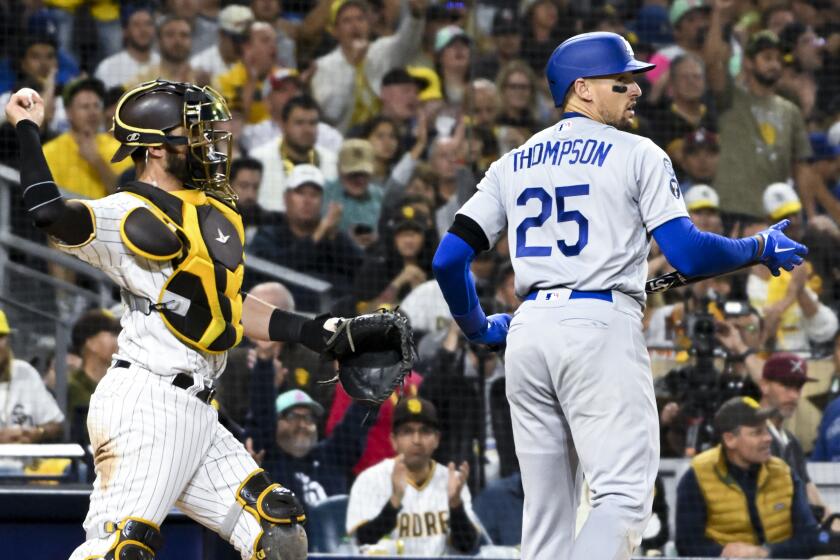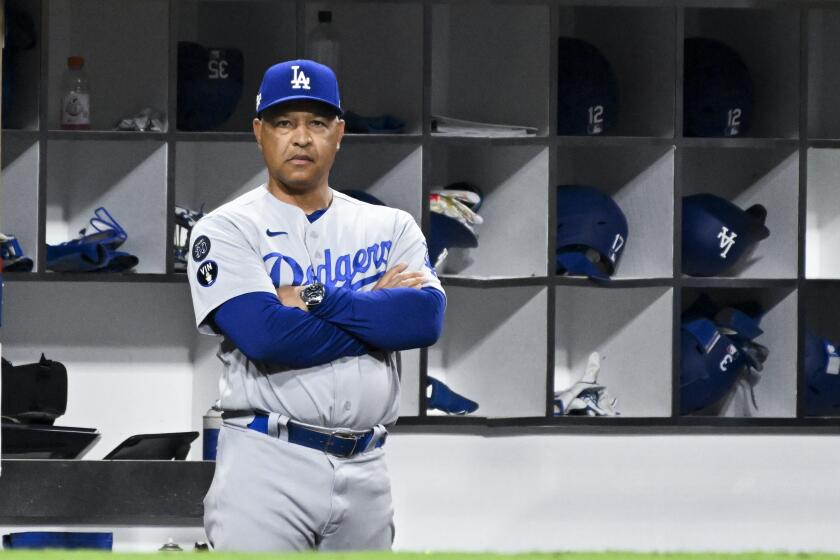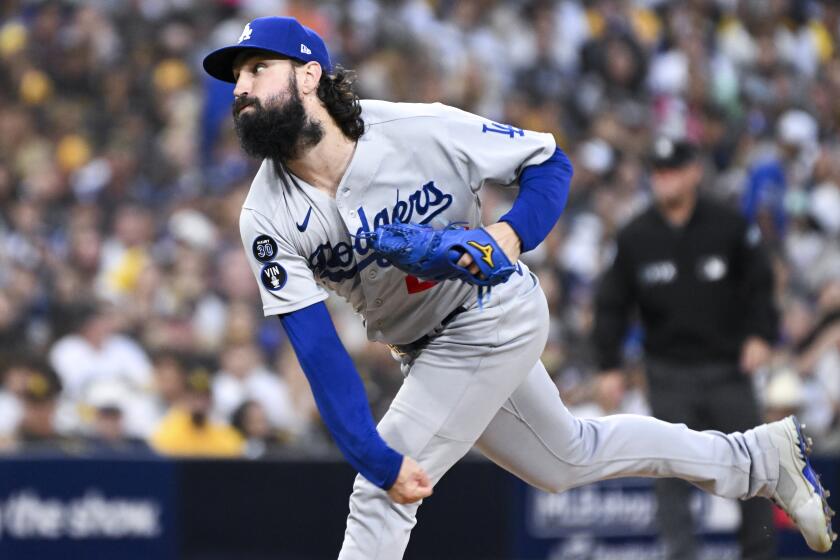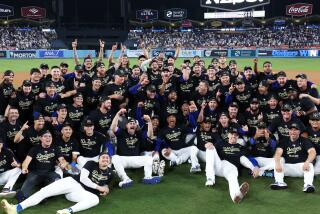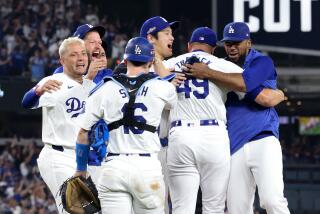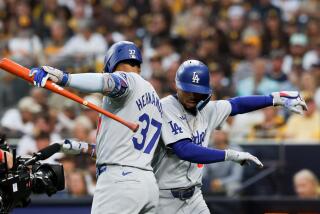Dodgers on the edge of elimination after Game 3 loss to Padres

SAN DIEGO — On the night of the Padres’ first home playoff game with a crowd in 16 years, their fans were treated to another sight that felt almost as rare.
With a 2-1 win Friday in Game 3 of the National League Division Series, the Padres conquered the Dodgers in a way they’ve seldom done in recent years, again quieting the majors’ best regular-season offense to take a two games to one series lead and put the Dodgers’ season on the brink.
“We’ve got to play better baseball,” manager Dave Roberts said.
Added shortstop Trea Turner: “It’s win or go home for us. We gotta get it done.”
After dominating baseball with an 111-win season, the Dodgers are on the verge of seeing their magic season turn into a playoff nightmare against the Padres.
If the Dodgers’ Game 2 defeat was a warning sign, their performance at a sold-out and amped-up Petco Park on Friday was a flashing red alarm.
Their bullpen game of a pitching plan was tenuous but effective.
Their inconsistent defense was shaky but not fatal.
Instead, in what feels like the most surprising, but also painfully familiar, shortcoming of their division series so far, the Dodgers star-studded lineup has been nothing short of a dud, managing just six hits against Blake Snell and four Padres relievers on Friday — and none with runners in scoring position for a second straight game.
Game 4 will be back at Petco Park on Saturday night.
And if the Dodgers don’t win, their historic 111-win season will come to a shocking end.
“It’s where we’re at,” Roberts said. “It was a very good regular season, but as we said before, none of that matters.”

Dodgers vs. Padres highlights in Game 3 of the NLDS
That was clear from the start on Friday night.
Early on, the Dodgers were frustrated at the plate by Snell, who had six strikeouts in a masterful 5-1/3-inning start; the umpires, who rang up several Dodgers hitters on question strike and check swing calls; and themselves, stranding Mookie Betts at second base in the first inning before leaving the bases loaded in the third.
They got little help from starter Tony Gonsolin, who gave up the game’s opening run during a shaky 31-pitch first inning, then was pulled following back-to-back singles with one out in the second inning.
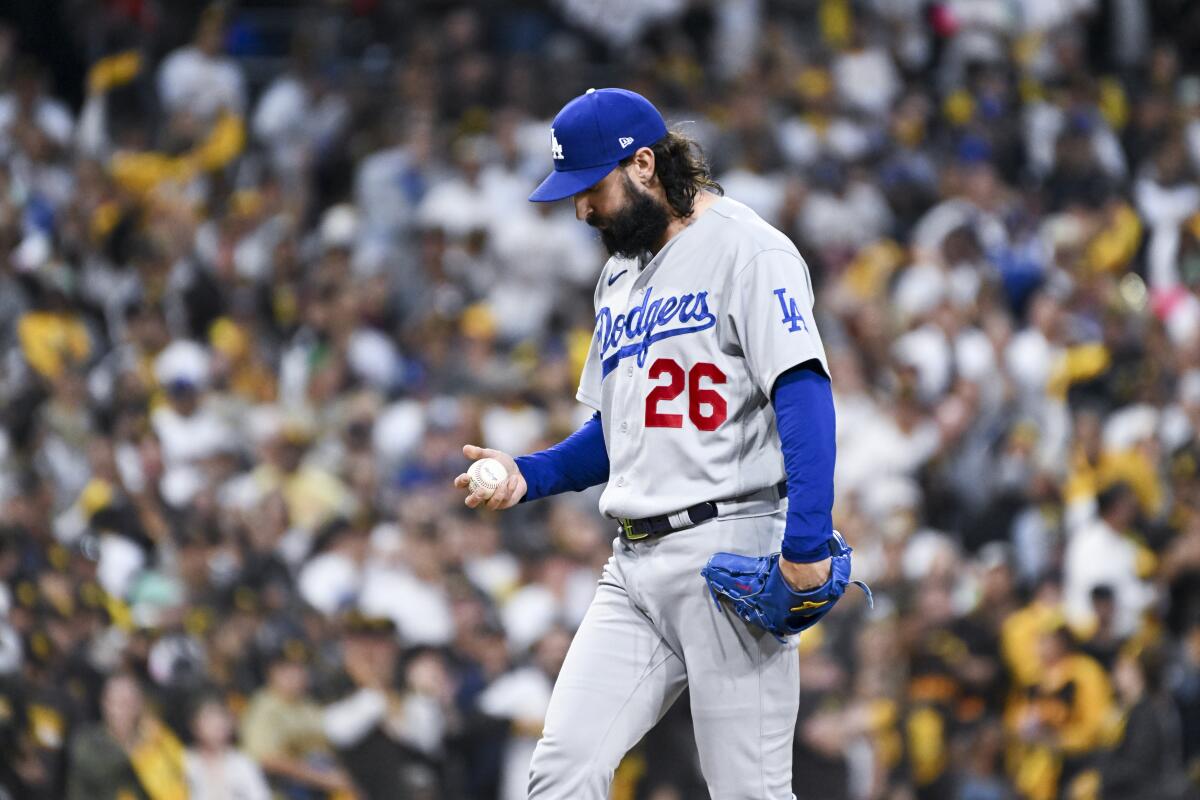
Then Trent Grisham brought the house down with a fourth-inning solo blast off a center-cut fastball from reliever Andrew Heaney, causing a Padres crowd starved of recent success in the postseason (their last home playoff game with fans was the 2006 NLDS) or against the Dodgers (who have won regular-season series in the rivalry 12 years running) to erupt in a sea of waving yellow towels and cheers of disbelief.
“There was so much momentum in the place,” Padres manager Bob Melvin said, “that it was hard not to get it done.”
The Dodgers certainly didn’t respond.
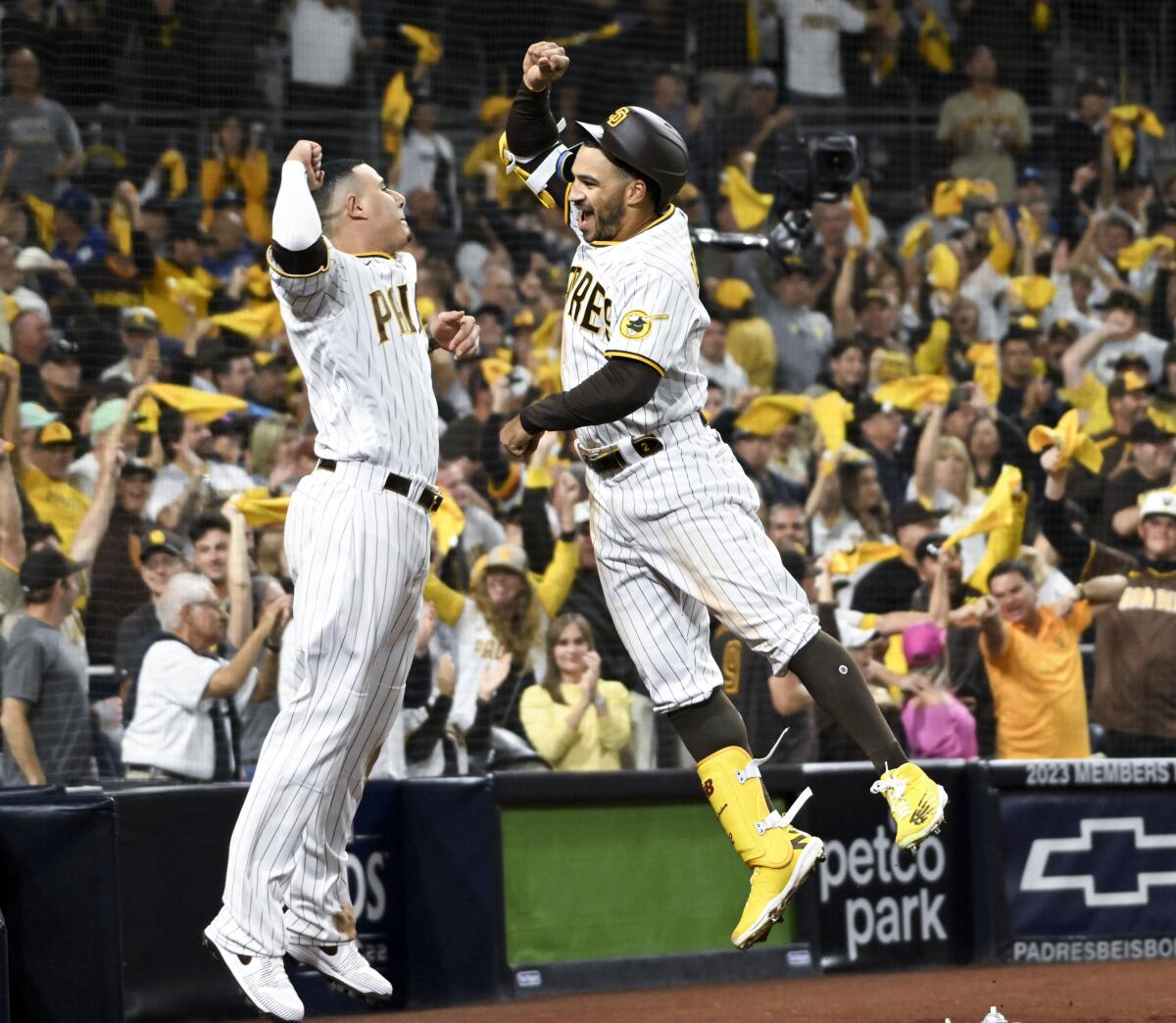
Even the one inning in which they plated a run, they also underscored their sudden struggles at the plate.
In the top of the fifth, the team had runners on second and third with no outs and the top of the order coming up.
It should have been the recipe for one of their signature big innings.
It could have been the sequence to swing the game, and the series.
Instead, after a Betts sacrifice fly made it 2-1 and advanced another runner to third, the Dodgers faltered again.
Turner fell into a 1-and-2 hole, then chased a fastball off the plate for a pop up in foul ground.
Freeman swung at the first pitch, but got jammed by an inside fastball for a routine grounder to third to end the inning.
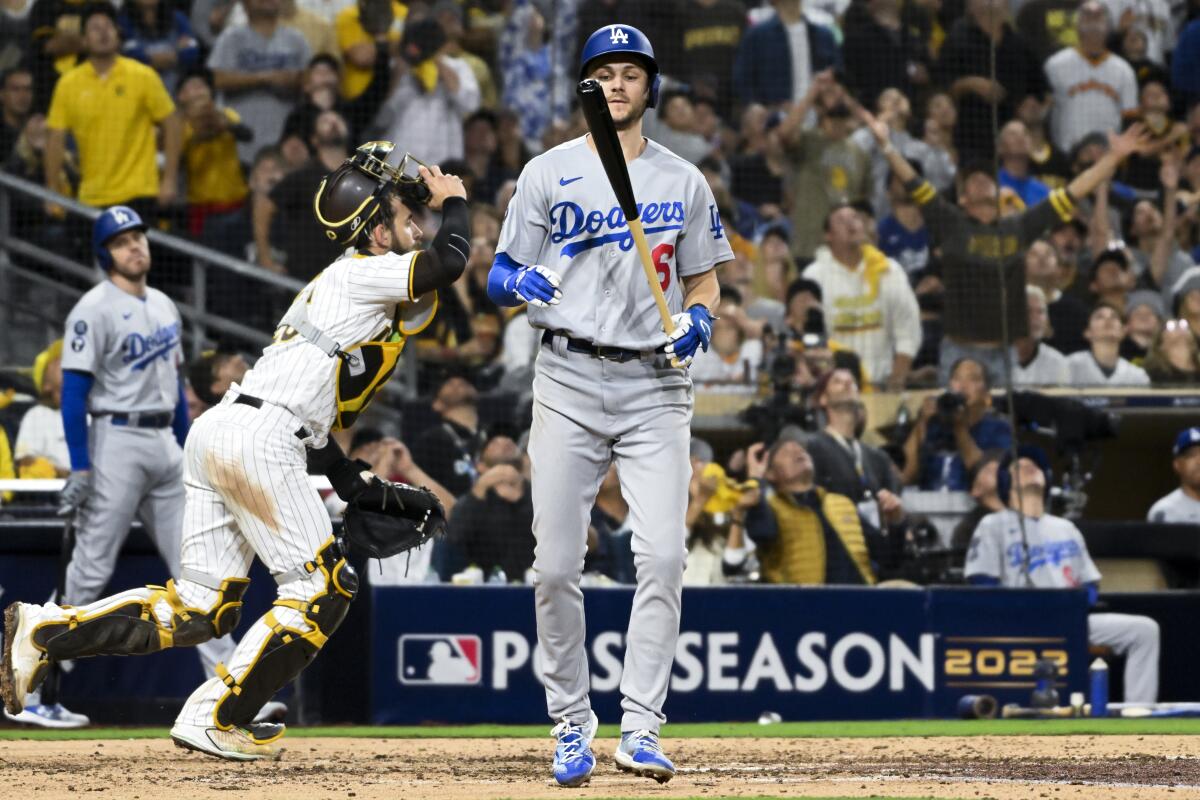
When the Dodgers wasted another opportunity in the sixth, finally chasing Snell from the game on a Max Muncy double but eventually stranding him there as well, it matched an ignominious season-high, dropping them to 0 for their last 19 with runners in scoring position going back to Game 1 — a skid they had only previously reached in mid-June and late September this season.
What’s worse: The only Dodger to reach base the rest of the night was Turner, who was not only stranded at first after a leadoff single in the eighth but jammed his finger sliding back on a pickoff attempt, making him questionable for Saturday’s Game 4. Postgame X-rays were negative.
The Dodgers’ offense continued to scuffle against the San Diego Padres in L.A.’s 2-1 loss in Game 3 of the NLDS, and now the 111-win team’s season is at stake.
The blame for the Dodgers current predicament can be directed many ways.
Betts, Freeman and Turner went two for 10 on Friday and are batting a combined .235 in the series.
Justin Turner is one for 10 this week, leading a group of underperformers near the bottom of the lineup.
The entire team still hasn’t adjusted against the Padres bullpen, which has now thrown 13 scoreless innings in this series.
The Dodgers’ decision not to acquire another starting pitcher this summer has backfired on them, putting them one loss away from their season ending.
And it is all coalescing in their struggles with runners in scoring position, which Roberts conceded might have something to do with an overaggressive approach at the plate.
“You can see those guys [the Padres] with runners in scoring position are getting more into at-bats, they’re using the big part of the field,” Roberts said. “I think that we’re being hyper-aggressive early in counts and not staying on the ball.”
As a result, the Dodgers face a situation that seemed far-fetched at the beginning of the week: Win back-to-back games on consecutive days, or watch their season go up in brown and yellow flames in the postseason’s second week.
More to Read
Are you a true-blue fan?
Get our Dodgers Dugout newsletter for insights, news and much more.
You may occasionally receive promotional content from the Los Angeles Times.

